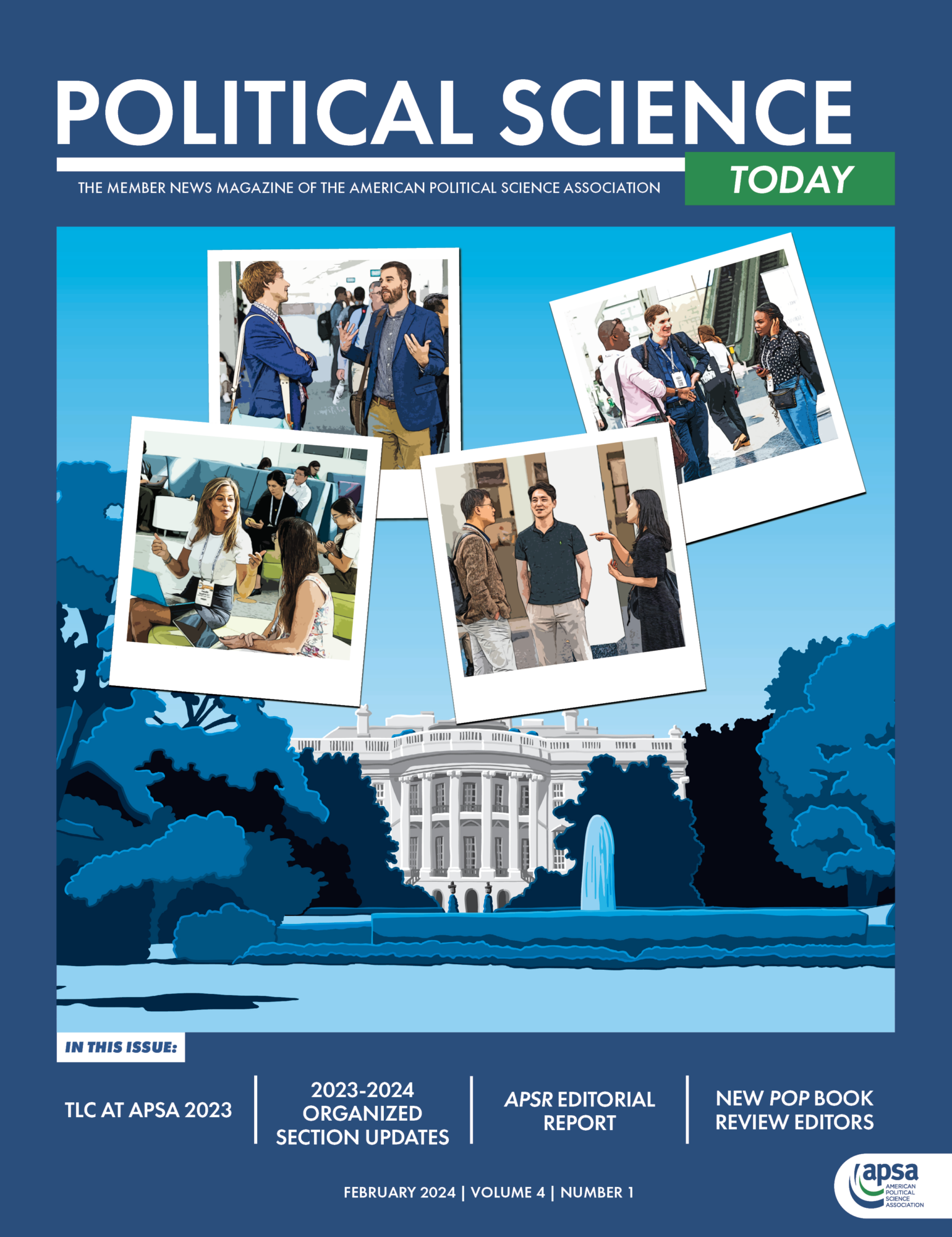Political Science Educator: volume 25, issue 2
The Teacher-Scholar
Elizabeth A. Bennion, Indiana University South Bend
On Jan. 6, 2021, rioters attacked the United States Capitol in an attempt to stop the certification of the 2020 presidential election and disrupt the peaceful transfer of power. At least seven people died, dozens more were injured, and hundreds of works in the Capital were defaced. Millions watched live as attackers equipped with zip ties and bear spray pushed through barricades, smashed windows, and called for the death of elected officials. Gallows outside the capital and pipe bombs near the headquarters of the Democratic and Republican National Committees made it clear that these events fell outside the criteria for a peaceful protest that symbolizes an active citizenry in a free nation.
For many political observers, the attack on the capital was a manifestation of an increasingly fractured and partisan Congress and nation, as well as a warning sign that U.S. democracy is in danger. The events of January 6th did not happen in a vacuum. The rise of violent extremism and support for anti-democratic symbols, actions, and leaders has grown in recent years in the U.S. and abroad. At the same time, negative partisanship turns people who do not share one’s partisan affiliation or ideological beliefs into personal enemies – and enemies of the state. The fallacies of confirmation bias and appeal to authority led millions of supporters to believe, without evidence, that the election was stolen from Donald Trump – just one of several conspiracy theories now embraced by Americans who distrust political institutions, the media, and their fellow Americans.
Until that day, violent attacks targeting powerful symbols of America were generally seen as a threat from beyond the country’s borders. This threat to safety, security, and democratic institutions came from fellow Americans. Unlike previous threats that arose from fringe groups or rogue individuals, those arrested on January 6th were often part of society’s mainstream.
They were teachers, CEOs, veterans, doctors, and lawyers. Rampant electoral disinformation,1 high levels of distrust in the election system,2 and increased support for political violence3 make another January 6th an all-too-likely possibility.
As democratic norms in the U.S. deteriorate amidst a national and global trend toward democratic backsliding, civic educators must consider how we can be part of the solution – defending democracy by strengthening support for democratic institutions and giving students the skills they need to engage in productive civic discourse. Americans from all demographic and ideological backgrounds who value self-governance need to work together to protect democratic institutions and forge a more perfect union.
Training educators to facilitate political discussions in a productive, civil, and inclusive manner is vital to the future of our nation. In a Political Science Educator essay I co-authored with MPA students Kayla Isenbletter and David Hurley. We review some best practices for facilitating civic dialogue while cultivating civic discourse that evolves with political reality. This includes exposing students to differing views, developing students’ communication skills, and guiding students through fact-checking processes and the development of thoroughly researched positions and collective policy solutions.
Teaching students how to work productively toward policy goals involving political compromise is another way that educators can address the threat to U.S. democracy. Simulations are a powerful way to give students hands-on, experiential learning that develops their understanding of the policy making process, including the competing pressures that policymakers face when passing legislation. This newsletter includes a second essay I co- authored with Hurley and Isenbletter highlighting the important ways political scientists use simulations to develop student capacity for productive civic and political engagement.
Grounding the simulations in personal interactions between diverse students, political decision makers, and the people who are most directly affected by specific policies enriches student understanding of the diversity of human perspectives and experiences, as well as the importance of public policy, political compromise, and political engagement. It is inevitable that people will get frustrated with their lives, politics, and the direction of the nation. As educators it is our job to draw upon our skills as teachers and scholars to equip students with the knowledge, skills, and experience to investigate political problems thoroughly using reputable sources and data, and to work within – and peacefully reform – democratic institutions while seeking collaborative, evidence-based, inclusive solutions.
End Notes
3journalofdemocracy.org/articles/the-rise-of-political-violence-in-the-united-states/
Elizabeth A. Bennion is a guest contributor to APSA Educate. The views expressed in the articles featured on APSA Educate are those of the authors and do not represent APSA’s views.
Published since 2005, The Political Science Educator is the newsletter of the Political Science Education Section of the American Political Science Association. All issues of the The Political Science Educator can be viewed on APSA Connects Civic Education page.
Editors: Colin Brown (Northeastern University), Matt Evans (Northwest Arkansas Community College)
Submissions: editor.PSE.newsletter@gmail.com
APSA Educate has republished The Political Science Educator since 2021. Any questions or corrections to how the newsletter appears on Educate should be addressed to educate@apsanet.org
Educate’s Political Science Educator digital collection





